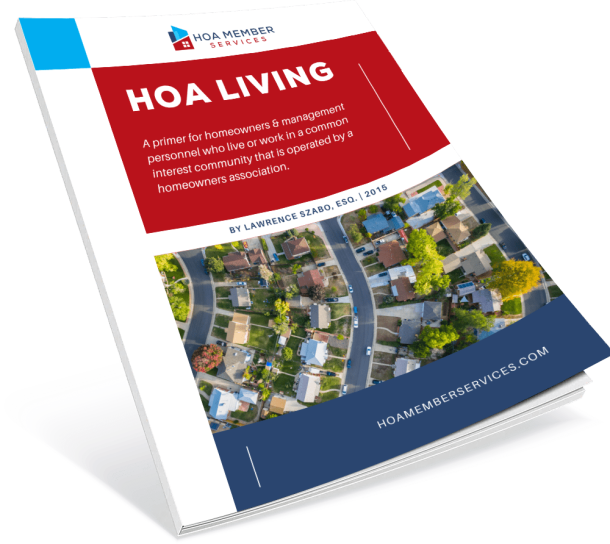Imagine this: you’ve sent emails to your HOA, made phone calls, and even knocked on a few doors, only to be met with… silence. No replies, no updates, just a frustrating void where answers should be. You’re left asking yourself, “Why is my HOA ignoring my request?”
Homeowners’ Associations (HOAs) play a vital role in maintaining harmony and order within communities, but their effectiveness hinges on one thing — responsiveness. When communication breaks down, it can strain relationships, stall progress, and leave you feeling stuck.
So, what to do if an HOA does not respond? This guide offers actionable, no-drama solutions to handle this tricky situation without escalating it into unnecessary legal conflicts.
Whether you’re dealing with unreturned calls or emails lost in the void, we’ll show you how to take back control, foster better communication, and get the answers you need. So, let’s get started.

1. Double-Check the Basics
When you’re met with radio silence from your HOA, frustration can mount quickly. But before assuming the worst, it’s worth taking a step back and reviewing the fundamentals. Often, the root of communication breakdowns lies in small, easily fixable details.
Here’s where to start:
Confirm Contact Details
If your HOA is not responding to emails or any other forms of communication, the first step is to verify you’re using the correct contact details. Are you emailing the right address? Using the correct mailing info?
Even a minor typo, like missing a single letter in the email address, can send your messages into the void, causing weeks of delay. The same applies to phone numbers.
Mistakes happen more often than you’d think, especially if your HOA recently updated its contact information or transitioned to new leadership. Take a moment to verify you’re reaching out to the correct and most up-to-date points of contact.
Review the Rules
HOAs tend to have specific protocols for communication. They typically spell out their preferred communication methods in governing documents like the CC&Rs (Covenants, Conditions, and Restrictions) or bylaws.
These might specify how you’re expected to reach out — whether through a formal letter, an online portal, or even by attending a board meeting. Digging into these documents may feel tedious, but it could save you time in the long run.
Maybe you’re emailing, but they require physical letters or online portal submissions. If you’re using an unofficial channel, your communication might be overlooked or not recorded properly.
Consider Timing
Timing is everything, especially with HOAs. Many operate on strict schedules, with monthly board meetings or quarterly review periods for handling issues. If your concern landed just after a major meeting, it might be weeks before it’s addressed.
Similarly, HOAs often have busy periods where they’re inundated with other responsibilities, like preparing budgets or addressing seasonal maintenance. It’s possible your issue isn’t being ignored — it’s just caught in the shuffle.
2. Keep a Paper Trail
If everything on your end is correct, from contact details to communication methods, and they’re still not responding, it’s time to take a strategic approach and get organized. Keeping a paper trail might sound old-school, but it’s the secret weapon for holding them accountable.

This step can make all the difference if the situation escalates. Here’s how you can make it work for you:
Document Every Attempt
Every time you reach out to your HOA, make a habit of logging the interaction. Whether it’s an email, a phone call, or a letter, jot down the key details: the date, time, and what was discussed or requested.
It doesn’t have to be fancy — use a notebook, a spreadsheet, or even an app if that’s your style. The goal is to create a clear record of your efforts. If you ever need to prove how hard you’ve tried to resolve the issue, this log will speak volumes.
Switch to Certified Mail
If emails and phone calls aren’t cutting it, step up your game with certified or registered mail. It’s not just about getting their attention — it’s about creating proof that they received your correspondence.
Certified mail gives you a receipt showing when the letter was sent and delivered, which can be a game-changer if the HOA later claims they never got your request. Plus, it sends a subtle message that you’re serious about following through.
Use Polite Persistence
While it’s tempting to vent your frustration, the key is to stay firm but professional. Following up regularly can be surprisingly effective if you strike the right tone. Consider phrases like, “I’m following up on my previous request sent on [date]. Please let me know when I can expect a response.”
Or, “I understand you’re busy, but I’d appreciate your attention to this matter by [specific date].” These kinds of messages keep the pressure on without giving the HOA an excuse to tune you out.
Pro tip: Set reminders to follow up weekly or biweekly. This keeps your concerns at the top of their inbox without coming across as overbearing.
3. Rally Support from Neighbors
When you’re feeling stuck, leaning on your neighbors can be one of the most effective ways to make progress. Chances are, you’re not the only one being ghosted by the HOA.
Here’s how to rally your community:
Ask Around
Start by having conversations with your neighbors. Have they also experienced delays or silence from the HOA? It’s possible this isn’t just your issue — it could signal a larger problem with how the HOA communicates or operates.
Knowing others share your frustration not only validates your concerns but can also give you a clearer picture of what’s really going on.

Create Group Pressure
There’s strength in numbers, and a united neighborhood voice is far harder to ignore than a single complaint. Once you’ve identified others facing similar challenges, consider organizing as a group.
Draft a collective letter or email, outline shared grievances, and emphasize the urgency of a response. You might even want to assign a spokesperson to ensure your group’s message is clear and consistent.
The goal here isn’t to antagonize the HOA but to show them that their inaction affects multiple people, not just you.
Attend Meetings
Check if the HOA holds regular meetings — these are often listed on your HOA website, community bulletin board, or even in newsletters. If they do, gather your group and attend.
Meetings are a prime opportunity to address the board directly. Speaking up in person allows you to make your concerns known in a way that emails or letters just can’t replicate.
Plus, it puts a face to the issues, making it harder for the HOA to brush them aside. If you feel nervous, practice ahead of time and consider preparing a short, clear statement to keep things focused.
4. Escalate Strategically
Escalation doesn’t always mean confrontation or being aggressive; it’s about finding smarter ways to get noticed and push the conversation forward.
Here are some steps to get their attention without starting a war:
Contact Board Members Individually
If the HOA as a whole isn’t responding, why not take it to the people who make up the board? HOAs are often run by a group of board members, but sometimes, the group dynamic leads to delays or inaction.
Reaching out to individual board members directly can be really effective. Send a respectful yet firm email or make a phone call explaining your issue and asking for their help.
Sometimes, the group’s collective silence is easier to crack when you approach them one by one. This personalizes the matter, making it harder to ignore. Often, just one engaged board member can spark the movement.
Use Social Media or Community Forums
In today’s digital world, HOAs frequently maintain an online presence through platforms like Facebook, Nextdoor, or community-specific forums. If you’ve hit a wall with formal communication, consider posting about your experience in these spaces.
Be careful to keep your tone calm and factual; venting too much frustration can backfire. Public forums are powerful because they add visibility to your concerns, prompting the HOA to respond to protect its reputation.
You might also find other residents who are facing similar issues, creating a collective voice that’s harder to ignore.

Contact the HOA Management Company
Many HOAs contract management companies to handle administrative and operational duties. If your HOA has one, this might be your best route to a resolution.
These companies typically have professional systems in place to track and respond to inquiries. A simple phone call or email to the management company could be enough to cut through the noise and get your issue in front of the right people.
5. Know When to Get Legal Help
Now, here’s the thing: Sometimes, despite your best efforts, your HOA simply won’t respond, no matter how persistent or patient you’ve been. This is when understanding your rights and recognizing when it’s time to bring in reinforcements becomes important.
Here’s how to know you might need legal help and how to go about it:
Understand Your Rights
First, it’s essential to recognize when a lack of response moves from frustrating to problematic. Are there safety issues that are being ignored, like broken streetlights or unmaintained common areas that could cause harm?
Or perhaps it’s a financial concern — mismanaged HOA funds, unauthorized assessments, or refusal to provide financial records. These aren’t just annoyances; they’re violations of the responsibilities an HOA has to its community.
Knowing your rights as a homeowner and understanding what your HOA is obligated to do by law is the foundation for taking effective action. This knowledge empowers you to determine whether legal intervention is necessary.
Request Mediation
Before heading straight to court, consider mediation as a first step. Mediation brings in a neutral professional to help both sides reach an agreement without the formality or expense of a legal battle.
It’s particularly useful when communication has broken down, but both parties are still open to resolving the issue. Suggest mediation to your HOA formally and in writing.
Not only is it less confrontational, but it’s also a sign that you’re approaching the situation reasonably and constructively. Plus, if mediation fails, this effort can strengthen your case if you later decide to pursue legal action.
Consult an Attorney
If mediation doesn’t resolve the issue, or if the problem is too serious to wait, like embezzlement or persistent safety hazards, consulting an attorney becomes the next logical step.
But this doesn’t mean diving headfirst into a lengthy and costly legal battle. Look for an attorney who specializes in HOA disputes, as they’ll understand the nuances of these cases. They can help you determine if legal action is the right path and advise you on the best way to proceed.
Remember to keep proportionality in mind; it’s important that the cost and effort of your legal actions match the scale of the problem. An attorney can help you find the balance between protecting your rights and resolving the issue effectively.
6. Prevent Future Communication Breakdowns
Dealing with an unresponsive HOA is frustrating, but it doesn’t have to be the norm. Taking steps to prevent future communication breakdowns can save you and your neighbors a lot of headaches.
Here’s how you can make a difference:
Advocate for Transparency
What if you never had to wonder about the status of your requests or what the HOA was planning? Transparency can make that happen. Encourage your HOA to adopt practices like regular newsletters or an online portal.
Newsletters can keep residents informed about upcoming meetings, project updates, and decisions, while an online portal can provide a space for residents to track requests, see responses, and stay connected.
These tools can help bridge the communication gap and make the HOA feel more accessible to everyone.
Run for the Board
Change often starts from within. If you’ve ever thought, “Someone needs to fix this,” maybe that someone is you. Running for the HOA board might sound challenging, but it’s a powerful way to influence how communication is managed.
As a board member, you can advocate for clear policies, push for accountability, and make sure residents’ concerns are addressed promptly. You’ll also gain a deeper understanding of how the HOA operates, which can help you solve problems more effectively.
Even if you don’t win, showing interest in leadership sends a strong message that the community values responsiveness.

Propose Updates to the Rules
Governing documents are the backbone of any HOA, and they should reflect the needs of the community. If your HOA struggles with timely communication, suggest updating the rules to include stricter response deadlines.
For example, a rule that requires the HOA to respond to resident inquiries within a certain number of days could hold the board accountable and reduce frustration. These changes might require some effort to propose and pass, but once implemented, they set a standard that future boards will have to follow.
Frequently Asked Questions (FAQs)
- How long does an HOA have to respond?
Response times can vary depending on the situation and the HOA’s governing documents. Many HOAs are required to reply to general inquiries within 30 days, while architectural or improvement requests can take 30 to 60 days. Some state laws, like in California, may require faster responses for specific requests, such as documents, within 10 business days. Always check your HOA’s rules and local laws for guidance.
- What if the HOA management company isn’t responding either?
If both the HOA board and the management company are unresponsive, it’s time to take further action. Start documenting everything. Keep copies of emails, letters, and phone call logs. Consider attending the next HOA meeting to address your concerns publicly. You can also send a certified letter to ensure your request is officially documented. As a last resort, you may need to involve a mediator or seek legal advice.
- Can I sue my HOA for negligence?
Yes, in some cases, you can sue your HOA for negligence, but it should be a last resort. Negligence might include situations where the HOA fails to maintain common areas, doesn’t enforce community rules fairly, or ignores its responsibilities as outlined in the governing documents. Before taking legal action, try to resolve the issue through communication, mediation, or arbitration. If those steps fail and you believe the HOA’s negligence has caused harm, consulting with an attorney experienced in HOA law can help you determine the best course of action.

The Bottom Line
When your HOA goes silent, it can feel frustrating and even overwhelming, but remember: silence doesn’t mean you’re powerless or out of options.
By staying calm, keeping meticulous records, and escalating your concerns thoughtfully, you can navigate the situation while preserving community harmony and standing up for your rights.
The key is to focus on constructive solutions and take control of the process without burning bridges.
If your HOA isn’t responding and you’re feeling stuck, don’t face it alone. Our resources and HOA attorneys are here to help you take the right steps — without unnecessary stress or conflict.
Join our membership program today for unlimited access to legal advice from professionals, guides, and personal support tailored to your situation. Let’s work together to get the resolution you deserve!

